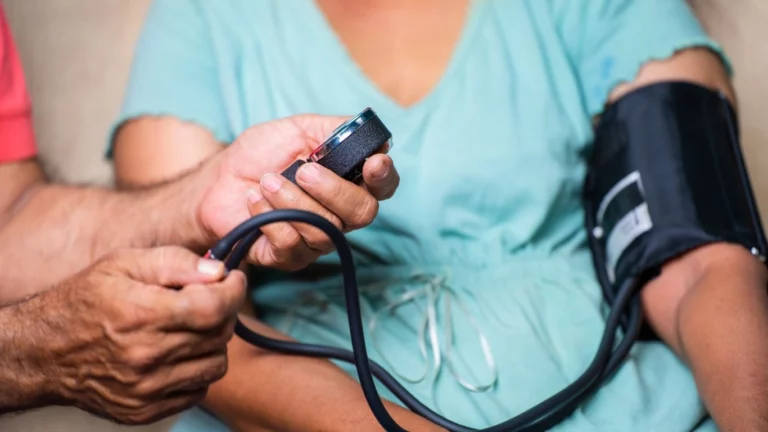Understanding GERD and Heart Palpitations: What You Need to Know
Learn about the connection between GERD and heart palpitations, symptoms, causes, and management strategies in this comprehensive guide.
Gastroesophageal reflux disease (GERD) is a common digestive disorder characterized by the backflow of stomach acid into the esophagus, leading to symptoms such as heartburn and regurgitation. While the primary symptoms of GERD are well-known, its association with heart palpitations may come as a surprise to many. In this article, we delve into the link between GERD and heart palpitations, exploring the symptoms, causes, and effective management strategies for individuals experiencing this unsettling combination.

Understanding GERD and Heart Palpitations
Gastroesophageal reflux disease (GERD) is a chronic digestive disorder characterized by the malfunction of the lower esophageal sphincter (LES). The LES, a ring of muscle located at the bottom of the esophagus, normally closes tightly after food passes into the stomach. However, in individuals with GERD, the LES fails to close properly, allowing stomach acid and other stomach contents to flow back up into the esophagus. This phenomenon, known as acid reflux, can irritate the lining of the esophagus and lead to various symptoms, including heartburn, regurgitation, and chest pain.
Heart palpitations, on the other hand, are sensations of a rapid, fluttering, or pounding heartbeat. While heart palpitations can be alarming, they are often benign and may occur due to various factors such as stress, caffeine consumption, or strenuous physical activity. However, in some cases, there appears to be a correlation between GERD and heart palpitations, although the exact mechanism behind this connection is not fully understood.
GERD Symptoms
GERD manifests through a variety of symptoms, which may include:
- Heartburn: A burning sensation or discomfort in the chest, often occurring after meals or when lying down.
- Regurgitation: The sensation of acid or food moving up from the stomach into the throat or mouth.
- Chest pain: A sharp or burning pain in the chest, which may be mistaken for a heart attack.
- Dysphagia: Difficulty swallowing, often accompanied by a feeling of food sticking in the throat.
- Hoarseness or sore throat: Irritation of the throat caused by acid reflux.
Symptoms of Heart Palpitations
Heart palpitations associated with GERD may present with symptoms such as:
- Chest pain or discomfort
- Heartburn
- Irregular heartbeat sensations
- Fluttering or pounding sensations in the chest
- Shortness of breath
- Anxiety or panic attacks
It’s crucial to note that these symptoms can overlap with those of other medical conditions, including cardiac issues such as arrhythmias or heart disease. Therefore, a comprehensive evaluation by a healthcare professional is essential to differentiate between GERD-related symptoms and those stemming from other underlying causes.

Causes of GERD-Related Heart Palpitations
The relationship between GERD and heart palpitations is complex and involves various mechanisms that intertwine the gastrointestinal and cardiovascular systems. Understanding these underlying causes is crucial for effective management. Here’s a detailed exploration of the factors contributing to GERD-related heart palpitations:
Vagus Nerve Stimulation
The vagus nerve, also known as the tenth cranial nerve, plays a vital role in regulating heart rate, gastrointestinal motility, and other autonomic functions. In individuals with GERD, episodes of acid reflux can lead to irritation of the esophagus, which in turn stimulates the nearby vagus nerve. This stimulation may trigger aberrant signals that affect heart rhythm, resulting in palpitations. The intricate interplay between the vagus nerve and the gastrointestinal tract underscores the potential for GERD to influence cardiac function.
Anxiety and Stress
GERD symptoms, such as chest pain, discomfort, and the sensation of reflux, can provoke feelings of anxiety or stress in affected individuals. Moreover, the uncertainty surrounding GERD exacerbations and the fear of experiencing severe complications can contribute to heightened psychological distress. Anxiety and stress, in turn, can induce physiological responses, including increased sympathetic nervous system activity and alterations in heart rate variability. These changes may manifest as palpitations, further blurring the line between GERD symptoms and cardiac manifestations.
Medication Side Effects
Pharmacotherapy is a cornerstone of GERD management, with proton pump inhibitors (PPIs), histamine-2 (H2) receptor antagonists, and antacids being among the commonly prescribed medications. While these drugs effectively suppress gastric acid production and alleviate GERD symptoms, they are not without potential side effects. Certain medications, particularly PPIs, have been associated with electrolyte imbalances, notably hypomagnesemia and hypocalcemia, which can disrupt cardiac conduction and predispose individuals to arrhythmias. Additionally, PPIs have been implicated in altering the activity of cytochrome P450 enzymes, potentially affecting the metabolism of other medications with cardiovascular implications. These drug-induced alterations in cardiac physiology may contribute to the occurrence of palpitations in some individuals with GERD.

Management Strategies for GERD-Related Heart Palpitations
Addressing GERD-related heart palpitations necessitates a multifaceted approach that targets both the underlying gastrointestinal pathology and the associated cardiac symptoms. Implementing comprehensive management strategies can effectively mitigate symptoms and improve overall quality of life. Here are key strategies to consider:
Medication
Pharmacotherapy remains a cornerstone of GERD treatment, aiming to alleviate symptoms and promote esophageal healing. Antacids, which neutralize gastric acid, provide rapid relief from heartburn and related discomfort. H2 receptor antagonists, such as ranitidine and famotidine, suppress acid secretion by blocking histamine-mediated stimulation of parietal cells. PPIs, including omeprazole and esomeprazole, exert potent and sustained acid-suppressive effects by irreversibly inhibiting the proton pump responsible for gastric acid secretion. By reducing esophageal acid exposure, these medications help alleviate irritation of the esophageal mucosa and mitigate the risk of GERD-related palpitations.
Lifestyle Modifications
Adopting healthy lifestyle habits can complement pharmacological therapy and optimize GERD management. Avoiding trigger foods and beverages, such as spicy foods, citrus fruits, caffeine, and alcohol, can help minimize acid reflux episodes and reduce the likelihood of experiencing palpitations. Maintaining a healthy weight through regular exercise and a balanced diet can alleviate pressure on the stomach and lower esophageal sphincter, thereby reducing the risk of acid reflux. Elevating the head of the bed by 6 to 8 inches during sleep can prevent nocturnal reflux and minimize associated symptoms, including nighttime palpitations. Additionally, incorporating stress-reduction techniques, such as mindfulness meditation, deep breathing exercises, and progressive muscle relaxation, can help mitigate psychological stress and modulate autonomic nervous system activity, thereby reducing the likelihood of palpitations.
Medical Evaluation
Persistent or severe heart palpitations warrant prompt medical evaluation to rule out underlying cardiac pathology and ensure appropriate management. Diagnostic assessments may include electrocardiography (ECG or EKG), ambulatory Holter monitoring, echocardiography, and stress testing to assess cardiac rhythm, structure, and function. Concurrently, gastroenterological evaluation, such as upper endoscopy (esophagogastroduodenoscopy or EGD), esophageal manometry, and pH monitoring, may be warranted to evaluate the extent of esophageal damage and assess the severity of GERD. By elucidating the underlying etiology of palpitations, healthcare providers can tailor treatment strategies to address the specific needs of each individual.
Collaboration with Healthcare Providers
Effective management of GERD-related heart palpitations requires collaboration among gastroenterologists, cardiologists, and other healthcare professionals. By fostering interdisciplinary communication and coordination, healthcare providers can ensure comprehensive care that addresses both the gastrointestinal and cardiac aspects of the condition. Treatment plans should be individualized based on the patient’s medical history, symptom severity, comorbidities, and treatment preferences. Regular follow-up visits and open communication between patients and healthcare providers are essential to monitor treatment response, adjust therapeutic regimens as needed, and address any emerging concerns or questions.

Conclusion
GERD and heart palpitations can be a challenging combination, but understanding their relationship and implementing effective management strategies can help alleviate symptoms and improve quality of life. By recognizing the symptoms, understanding the underlying causes, and adopting appropriate lifestyle changes and medical interventions, individuals can take control of their digestive health and cardiac well-being.
If you experience GERD symptoms accompanied by heart palpitations, it’s crucial to seek medical advice promptly. A healthcare professional can provide personalized recommendations and guide you toward the most appropriate management plan for your unique situation.
Appendices
References
For further exploration of the connection between GERD and heart palpitations, consider reviewing the following references:
- Yadlapati, R., Kahrilas, P. J., Fox, M. R., Bredenoord, A. J., Prakash Gyawali, C., Roman, S., … & Gyawali, C. P. (2018). Esophageal motility disorders on high-resolution manometry: Chicago classification version 4.0©. Neurogastroenterology & Motility, 30(8), e13358. Read Article
- Alboni, P., Alboni, M., Bertorelle, G., & Scarfo, S. (2012). Syncopal signs and symptoms may mimic the occasional manifestations of heart disease or may go unnoticed or be attributed to other conditions such as epilepsy, vertigo or dizziness. European Heart Journal, 33(9), 1117–1123. Read Article
- Richter, J. E., & Rubenstein, J. H. (2018). Presentation and Epidemiology of Gastroesophageal Reflux Disease. Gastroenterology, 154(2), 267–276. Read Article
- Stanghellini, V., Chan, F. K., & Hasler, W. L. (2016). Gastroduodenal Disorders. In D. A. Drossman (Ed.), Rome IV Functional Gastrointestinal Disorders (pp. 141-178). Rome: Degnon Associates. Read Article
FAQs
Here are some frequently asked questions about GERD and heart palpitations:
- Can GERD cause heart palpitations? Yes, GERD can sometimes trigger or exacerbate heart palpitations due to factors such as vagus nerve stimulation, anxiety, or medication side effects.
- How are heart palpitations related to GERD? The relationship between heart palpitations and GERD may involve overlapping symptoms, vagus nerve stimulation by acid reflux, and psychological factors such as anxiety or stress.
- What should I do if I experience heart palpitations with GERD symptoms? If you experience heart palpitations along with GERD symptoms, it’s essential to seek medical evaluation to rule out underlying cardiac issues and determine the appropriate management plan.
Related Table
Here’s a summary table of key information regarding GERD and heart palpitations:
| Aspect | Information |
|---|---|
| GERD Symptoms | Heartburn, regurgitation, chest pain, difficulty swallowing |
| Heart Palpitations | Rapid, fluttering, or pounding heartbeat sensations |
| Possible Causes | Vagus nerve stimulation, anxiety, medication side effects |
| Management Strategies | Medication, lifestyle modifications, medical evaluation |
Note: This table provides a general overview and should not replace professional medical advice.
Disclaimer: The information provided in this article is for educational and informational purposes only. It is not intended to be a substitute for professional medical advice, diagnosis, or treatment. Always seek the advice of your physician or other qualified health provider with any questions you may have regarding a medical condition. Never disregard professional medical advice or delay in seeking it because of something you have read in this article. Reliance on any information provided in this article is solely at your own risk.

Camellia Wulansari is a dedicated Medical Assistant at a local clinic and a passionate health writer at Healthusias.com. With years of hands-on experience in patient care and a deep interest in preventive medicine, she bridges the gap between clinical knowledge and accessible health information. Camellia specializes in writing about digestive health, chronic conditions like GERD and hypertension, respiratory issues, and autoimmune diseases, aiming to empower readers with practical, easy-to-understand insights. When she’s not assisting patients or writing, you’ll find her enjoying quiet mornings with coffee and a medical journal in hand—or jamming to her favorite metal band, Lamb of God.







